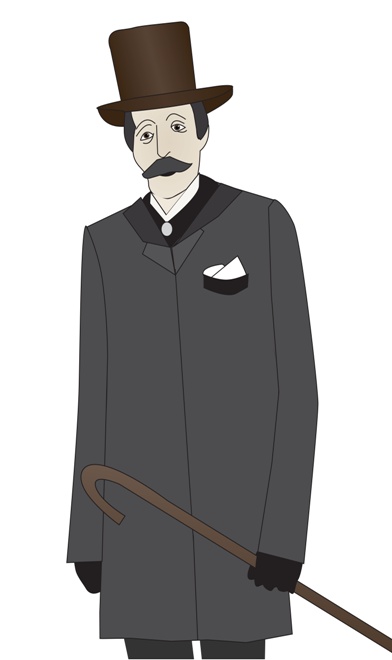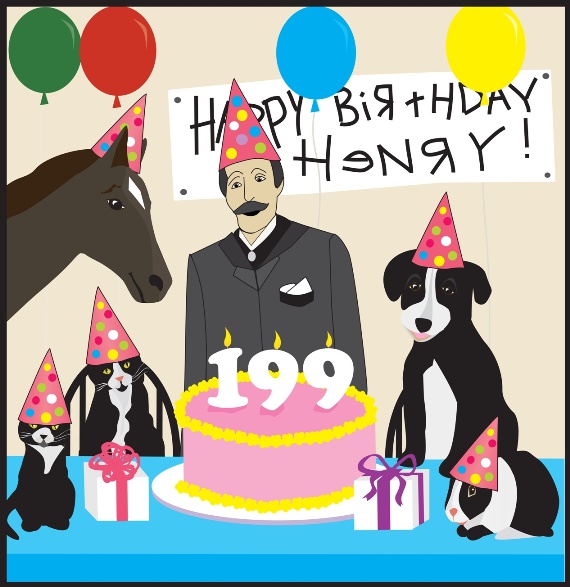“I hate to think what will befall this Society when I am gone.” — Henry Bergh.

Henry Bergh, the great founder of the humane movement in North America, once said,
The chief obstacle to success of movements like this [is] that they almost invariably gravitate into questions of money or politics. Such questions are repudiated here completely: If I were paid a large salary: I should lose that enthusiasm which has been my strength and my safeguard.
In 2010, the ASPCA paid its president over half a million dollars—$555,824—in salary and other compensation. It raised nearly $150 million dollars, but only found homes for 3,389 animals at its one and only shelter located in New York City—roughly $41,000 per animal adopted. And it sent the neediest of animals to the NYC pound to be killed. It is no surprise that it also has spent the better part of the last 50 years defending killing and fighting reform efforts. By contrast, when Henry Bergh founded the ASPCA, he fitted it with what he called “the very plainest kind” of furniture. When the Governor of New York visited the ASPCA, he stumbled over a hole in the old carpet and said: “Mr. Bergh, buy yourself a better carpet and send the bill to me.” To which Bergh replied, “No, thank you, Governor. But send me the money, and I will put it to better use for the animals.”
Near the end of his life, Bergh often worried about the future of the ASPCA, stating, “I hate to think what will befall this Society when I am gone.” It didn’t take long for Bergh’s worst fears to come true. Shortly after his death, and against his express instructions, the ASPCA traded in its mission of protecting animals from harm for the role of killing them by agreeing to run the dog pound—something that Bergh rejected during his lifetime: “This Society,” he once wrote, “could not stultify its principles so far as to encourage the tortures which the proposed give rise to.” He would not allow his ASPCA to do the city’s bidding in killing dogs they deemed “unwanted.” In fact, Bergh’s answer was the opposite: “Let us abolish the pound!” he proclaimed. But after his death, the ASPCA capitulated and took over the pound, becoming New York City’s leading killer of dogs (and later cats). It was a terrible mistake, one emulated by humane societies and SPCAs nationwide, with devastating results.
Unwilling to harm the animals they were supposed to be protecting, animal lovers fled from these organizations, and bureaucrats and opportunists with no passion for animals or for saving their lives took them over, paving the way for the crisis of uncaring and killing we have inherited today. What began as a nationwide network of animal protection organizations devolved into dog and cat shelters whose primary purpose became, and in too many communities remains, killing animals, even when those animals are not suffering. And the mighty ASPCA, once a stalwart defender of animals, became a stalwart defender of killing them, beholden not to animals or furthering their best interest, but to a ruthless fundraising machine enriching itself and its leadership at the expense of its founding mission.
But there is hope: With no allegiance to the status quo or faith in conventional “wisdom,” new leaders are causing dog and cat deaths to plummet in cities and counties across the country by rejecting the “adopt some and kill the rest” inertia of the past one hundred years. There is renewed hope for the future. A No Kill nation is now within our reach. We have the power to build a new consensus, which rejects killing as a method for achieving results. And we can look forward to a time when the wholesale slaughter of animals in shelters is viewed as a cruel aberration of the past. To get to that point, we must learn from history and reject our failures.
When the early founders of the animal protection movement died and their organizations took over the job of killing those they had been formed to protect, a fiery zeal was replaced with a smoldering ember that gave little light or warmth and the humane movement went to sleep. People like the tirelessly devoted ASPCA founder, Henry Bergh, were replaced with individuals who care so little for animals as to allow tremendous cruelty and killing to continue unabated, even when they could use the power their positions afford to stop it. After over 100 years of this antiquated and deadly paradigm, the grassroots of the animal protection movement is finally waking up.

Today is Henry Bergh’s birthday. Next year, we will celebrate the bicentennial of his birth. In honor of the great Mr. Bergh’s 200th birthday, on behalf of the No Kill Advocacy Center, in partnership with Sagacity Productions, I am happy to announce that we will release a feature-length documentary that will tell his story—and ours.
To be notified of its release in early 2013 and for more information, click here. (Update – the film is now available for free, online viewing by clicking here.)
————————-
Have a comment? Join the discussion on my Facebook page by clicking here.